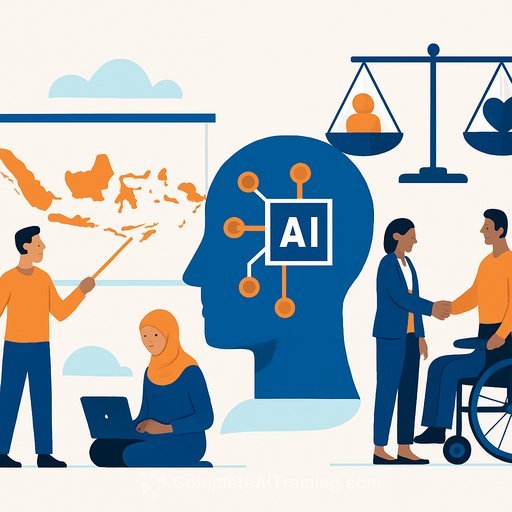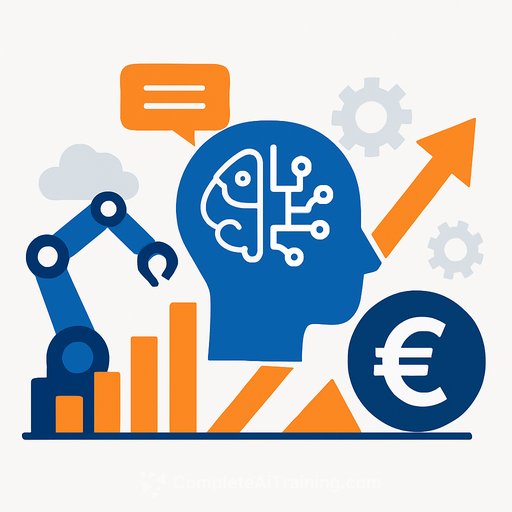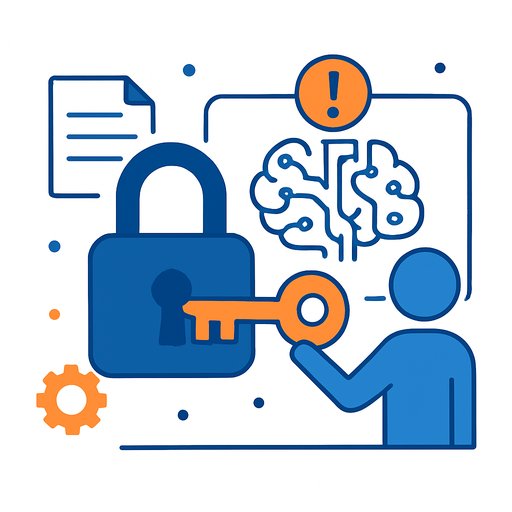Indonesia's AI Roadmap: Practical Takeaways for Builders and IT Leaders
Indonesia is moving fast to build a national AI ecosystem that supports economic growth, social outcomes and digital transformation. A new AI roadmap will focus on ethical, inclusive and accountable use of AI, with a clear eye on global competitiveness and the "Golden Indonesia 2045" vision.
The plan balances opportunity with risk management across policy, data and deployment. Public consultations are underway to keep the process fair, transparent and grounded in real needs across government, industry, academia and civil society.
Governance and Ethics: What to Expect
Indonesia completed UNESCO's Readiness Assessment Methodology for AI in 2024, signaling intent to adopt AI responsibly. The roadmap emphasizes safeguards and responsible adoption so systems earn public trust and deliver measurable value.
- Accountability by design: clear ownership over models, data and decisions.
- Bias and fairness testing with documented evaluation methods.
- Data protection and provenance controls across the lifecycle.
- Model transparency: documentation, versioning, audit logs and explainability where feasible.
- Content integrity: misinformation detection, provenance signals and safe output policies.
Expect tighter coordination across ministries and agencies. Deputy Minister Nezar Patria has highlighted the need to manage misinformation risks and ensure AI serves public needs, moving toward an "AI Independent Indonesia."
UNESCO's AI resources outline global best practices that complement these goals.
Five Priority Sectors, Clear Technical Opportunities
The roadmap focuses on areas that improve citizen outcomes and operational efficiency. If you build products or run teams in these domains, there's near-term demand for production-grade AI.
- Health: predictive analytics for outbreaks and patient risk, triage and imaging support, clinical summarization, and virtual assistants that respect privacy.
- Digital talent education: adaptive learning, coding copilots, assessment automation and skills analytics to scale technical upskilling.
- Bureaucratic reform: intelligent document processing, search over policy and regulations, service chatbots, RPA, and knowledge graphs for faster case handling.
- Smart city development: demand forecasting, mobility analytics, incident prediction, energy optimization and digital twins for planning and operations.
- Food security: yield forecasting, weather-aware crop planning, pest/disease alerts, and supply chain optimization with real-time monitoring.
Delivery Playbook for Teams
To align with the roadmap and win adoption, teams should harden engineering practices and show evidence of safety and impact.
- Data foundation: governed datasets, lineage, quality checks, PII minimization, and access controls.
- MLOps: CI/CD for models, registry, automated evaluation, drift monitoring and rollback plans.
- LLMs and NLP: evaluation on Bahasa Indonesia and local languages, RAG with curated knowledge bases, red-teaming and output filtering.
- Digital twins: integrate IoT streams with simulation models for cities, utilities and logistics.
- Security and compliance: model cards, audit trails, incident response, dataset documentation and clear human-in-the-loop steps.
- Impact measurement: define KPIs upfront (cost to serve, time-to-resolution, accuracy, citizen satisfaction) and report consistently.
Startups, Talent and Investment
The roadmap calls for growing AI startups, funding research and deploying advanced methods like machine learning, natural language processing and digital twins. Expect more pilots, sandboxes and public-private partnerships.
For founders and engineering leaders, this means strong demand for domain-specific solutions, integration with public systems and clear paths to scale across cities and agencies. International collaboration and investment are likely to increase as the ecosystem matures.
What to Do Next
- Map your product backlog to one of the five sectors and identify a pilot with a clear KPI and policy owner.
- Stand up governance basics: data inventory, model registry, evaluation reports, bias checks and monitoring.
- Build misinformation safeguards where relevant: provenance signals, watermarks and human review for sensitive workflows.
- Upskill your team on applied AI for public services and regulated environments. See curated options by role at Complete AI Training.
Bottom Line
Indonesia's AI roadmap connects ethics, delivery and national priorities. For IT and development teams, the window is open to build useful, verifiable systems that improve services, reduce friction and scale across sectors while meeting clear governance standards.
Your membership also unlocks:






